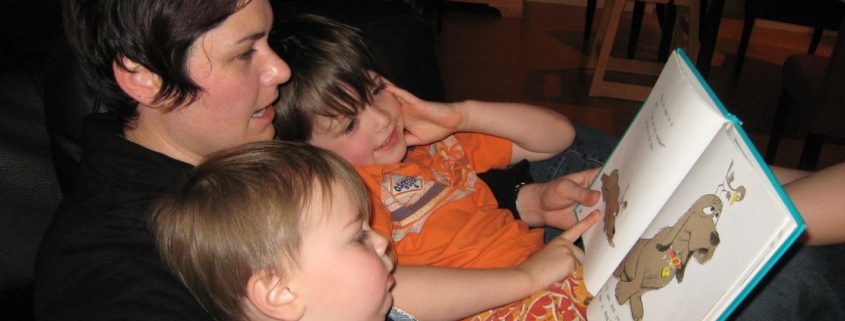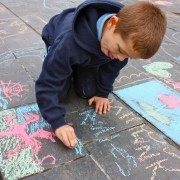Story Telling for Parents
What makes a good story?
Think of a book that you’ve read to your young child, which they’ve loved it – in which case you’ve probably read it hundreds of times!
What was it they loved?
Books on ‘repeat cycle’ at your house often have similar features. Things like:
Colourful pictures
An engaging story
A lead character
An element of drama
A chorus or refrain which children can remember and join in with, and
A desire to turn the page to see what happens next
Stories also come alive due to how the reader delivers the story:
Your use of different voices for the different characters
The tone of your voice – serious or light-hearted
The volume of your voice – a loud growly voice, or a gentle whisper.
The questions you ask to engage the child in the story
The enthusiasm in your face and
The encouragement you give for your child to join in.
Why does your child choose the same book over and over?
For young children it is the element of control – they don’t have to guess what happens next – because they know!
It’s also because it’s familiar – they know the story and the happy outcome.
The repeated chorus or refrain means they can participate in the story
There’s an element of pride because when you ask questions such as: “Where did the dog go’? or: ‘What will the boy do?’, they know the answer – which makes them feel good.
I’m a great lover of books and an advocate for reading to children. The benefits of reading to children are well known in terms of building vocabulary, fostering imagination and possibilities, understanding the value of books for fun and for knowledge development, and of course parent-child interaction.
Have you ever thought of telling your child a story, instead of reading to them? This is another way to also develop those skills – listening, asking questions, increasing vocabulary and expanding their understanding of the world.
You could tell them a story about your childhood – something fun or interesting, or even when you were a bit naughty – children love to hear that! The story could be from your day at work, about the people you met or a funny situation. Tell them a story about what happened when you burnt the biscuits you were baking, or about when the washing machine flooded the laundry.
When you build the story from an ordinary event, then add drama and then a solution it can make for an interesting tale – especially when you vary your voice and make it dramatic!
You can also engage children in making up a story. Tell them that you read books every night but wondered if maybe you and s/he could make up your own story tonight. Perhaps use their favourite toy as the main character and ask what did teddy do today? Even a 3 year old can give you a lot of information. With your prompting of: ‘What happened next?’ and your expressive interactions: ‘Oh no, poor teddy?’ you’ll encourage their story telling capacity.
Happy story telling this week!







